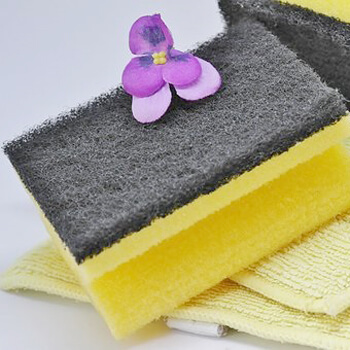Spring Cleaning is Here!

As the weather starts to warm over the coming weeks, people across the country get in the cleaning spirit and begin tackling projects, big and small, around the house.
By Lou Ann Bruno-Murtha, DO, Division Chief, CHA Infectious Diseases.
This is a great opportunity to get rid of old household items, donate clothes to charity, and make our living spaces healthier for friends and family.
But you may wonder, where do I start? Creating a to-do list of projects can be daunting at first and put a quick damper on the cleaning season. Have no fear! Here are four simple ways to kick off your annual spring cleaning that will not consume countless hours.
- The refrigerator can become a depository for old foods, especially if we come from large families. Start by removing all of the food from the fridge and scrub surfaces with an all-purpose cleaning solution. Afterward, remove anything that is expired. If you have time, use the same process for cupboards, the pantry, and other places where food is stored.
- While in the kitchen, clean the chopping block with vinegar and dispose of that old sponge. Sponges can become really filthy and, at times, have more germs than the shower or toilet.
- Open the medicine cabinet and sort through medications based on the expiration date (same as above). Be sure to open each bottle and get rid of pills if they smell bad or appear to be discolored. If you need to dispose of prescription drugs, see if there is a designated Prescription Dropbox Location locally.
- Give fabrics a thorough wash in order to prevent allergies. This includes blankets, bedroom sheets, comforters, towels and washcloths to name a few. Also, vacuuming areas with large rugs, at least weekly, will help remove other dust causing allergies.
For more useful resources on home safety, check out the Home and Recreational Safety section of the Centers for Disease Control and Prevention’s website. Remember, if you have specific questions based on a family members medical history it is best to consult with your primary care physician.
Disclaimer
This articles provide general information for educational purposes only. The information provided in this article, or through linkages to other sites, is not a substitute for medical or professional care, and you should not use the information in place of a visit, call consultation or the advice of your physician or other healthcare provider.